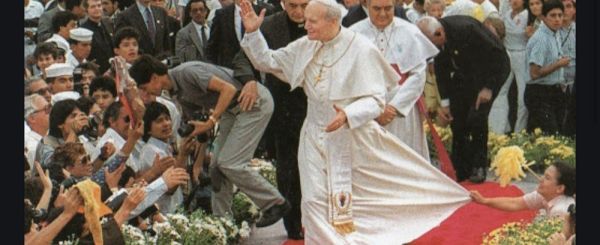1. [...] Christian tradition commemorates the martyrdom of St John the Baptist; the Messiah himself says in praise of him: "none born of woman is greater" (cf. Lk 7: 28). He gave to God the supreme witness of his blood, sacrificing his life for truth and justice; indeed, his head was cut off at the orders of Herod, whom he had dared to tell that it was not lawful to take his brother's wife (cf. Mc 6: 17-29).
2. In the Encyclical Veritatis Splendor, recalling the sacrifice of John the Baptist (cf. n. 91), I observed that martyrdom is "an outstanding sign of the holiness of the Church" (n. 93). Indeed, it "represents the high point of the witness to moral truth" (ibid.).
Although relatively few are called to make this supreme sacrifice, it is nonetheless "a consistent witness which all Christians must daily be ready to make, even at the cost of suffering and grave sacrifice" (ibid.). At times, a truly heroic effort is also needed in daily life, in order not to give in to the difficulties that are an incentive to compromise and to live the Gospel "sine glossa".
3. The heroic example of John the Baptist reminds us of the martyrs for the faith who down the centuries followed courageously in his footsteps. I recall in particular the multitude of Christians in the last century who were also victims of religious hatred in various European nations. Today too, in some parts of the world, believers are still subjected to harsh trials for adhering to Christ and his Church.
May these brothers and sisters of ours feel the full solidarity of the entire Ecclesial Community! Let us entrust them to the Blessed Virgin, Queen of Martyrs, whom we call on together.
[Pope John Paul II, Angelus 29 August 2004]












